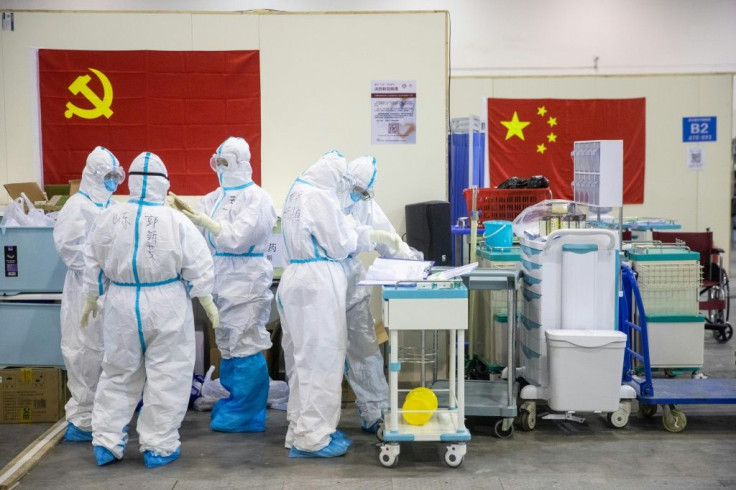Coronavirus Update: China Officially Honors Doctors Who Died of Covid-19 As 'Martyrs'
China’s Ministry of Veterans Affairs and the Political Work Department of the Central Military Commission have announced plans to honor medical workers and other personnel who have died helping others survive the battle against the novel coronavirus named Covid-19. They will be designated as “Martyrs.”
Those honored will include those who succumbed to the virus while performing duties such as diagnosis, treatment, nursing, nosocomial (hospital-acquired) infection control, specimen collection, pathogen detection, and patient transfer. Others who meet a “certain criteria” could be included on the list as well.
Among the two potential honorees is 51-year-old Liu Zhiming, the director of the Wuchang hospital in Wuhan. He died at the center of the outbreak. He was a neurosurgeon and the most senior health worker known to have died as a result of the Covid-19 epidemic.
The other is Dr. Li Wenliang, the Chinese ophthalmologist who first sounded the alarm on the coronavirus after he recalled seeing reports in December of an unusual cluster of pneumonia cases linked to an animal market in Wuhan.
Before his passing, he claimed that he had contracted the virus from a patient he was treating for glaucoma. He also claimed on social media that the local police had tried to silence him. Many were angry that the government had tried to stifle his earlier warnings about the virus and accused it of also trying to cover up his death.

The total deaths from the disease caused by Covid-19 have passed the 2,000 mark with over 75,000 cases confirmed, according to health officials. Only five deaths have been confirmed outside of China; the bulk of the deaths are in the Hubei province and its capital Wuhan.
A glimmer of good news is that outside Hubei, the rate of new cases has declined for 14 consecutive days. This could be due to the extreme measures that some have described as “draconian.”
A CNN analysis of Chinese government orders shows that about 780 million people are still living under some form of restrictive movement, including in Beijing and Shanghai. The measures include self-quarantine and limiting neighborhood-to-neighborhood travel.
Inside Hubei, the limitations are more severe. Residential complexes and communities in four cities -- Wuhan, Huanggang, Shiyan and Xiaogan -- are completely sealed off. Non-essential vehicles on local roadways are banned. Some residents are not permitted to leave their homes and get their daily necessities from neighborhood and community committees.
Even the Chinese Communist government is affected as the annual meeting of the National People's Congress (NPC), where nearly 3,000 national legislators, meet may be canceled.
Meanwhile, the front-line battles continue, with medical workers facing the highest risk of infection. The time to pass out awards to the “Martyrs” is not yet here as there will likely be more names added to the list before the Covid-19 virus infections peak or a vaccine is developed to slow its spread.
© Copyright IBTimes 2024. All rights reserved.











